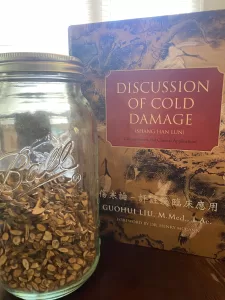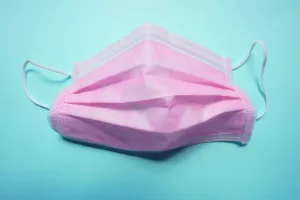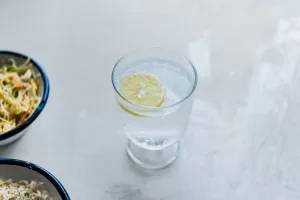Acupuncture
Allergies and Chinese Medicine

Allergy season is here! Claritin and Allegra are flying off the shelves as people fly out of their minds, unable to stop mucus from plummeting from their orifices. Eyes are itchy, sneezing on trains is incessant, peaking everyone’s concern about the guy next to them. Is it Covid or allergies? Probably the latter, but not worth the risk. As the new fight or flight of cold and flu season goes: Mask or move?
In Chinese medicine allergies are a symptom of “wei qi deficiency,” or immunological compromise, in the springtime generally due more to a weakness in the body’s blood or healthy organ fluids—in fall more to excess inflammation and/or a weakened microbiome.
Fall is the season that corresponds more with the lungs and respiratory orifices, making allergies at this time of year a bit more biologically “normal” than those in the spring. Spring corresponds with the “liver,” which is to say the functional aspect of the body that uses blood to raise cellular energy upwards and outwards, including our immunological cells. Chances are good if one suffers with spring allergies, they might also be prone to anemia, dizziness, general dryness, or blood loss (which includes childbirth!).
While OTC medications are reductionist medicine—never the most thoughtful treatment—they are understandable to use as needed, temporarily and in moderation. Over time they can indiscriminately dry out our healthy fluids, especially in allergy sufferers of the spring variety. Persons with severe blood or fluid deficiency often find that OTC allergy meds are either ineffective or only temporarily effective, causing they or their doctor to increase dosages, thereby aggravating the root cause of the condition.
Enter the first mentioned and arguably most important herbal formula in our medicine’s most important text, cinnamon branch, or “gui zhi.” Cinnamon branch dilutes blood vessels to assist in circulating cellular energy, both of the immune system and otherwise (mostly) upward. Its primary indications include those of common viruses, such as headaches, sweating, neck and body pains, as cinnamon reaches the most superficial layer of the body to ward off external pathogens and circulate fluids back downward.
Its most famous formulaic combination includes licorice, ginger, dates, and most importantly paeonia root, whose job is to mitigate cinnamon’s warm, drying qualities, to nourish the blood and protect the stomach from over-heating (in other words, a more thoughtful Allegra). Two famous modifications of this formula are one that completely omits the cinnamon, and another that completely omits the paeonia, each of which radically changes its effects one way or the other. For spring allergies, we might consider omitting the cinnamon to enhance the blood nourish effects of paeonia on the liver meridian, which is ruled by spring. Conversely, at this time of year, as we begin our descent into the colder weather, we omit the paeonia, allowing the cinnamon to run wild, warming both the body’s surface and its internal organs below.
But of course, this is Chinese medicine, and we might do neither of these. Based on one’s tongue, pulse, and oral report, we might not even use a cinnamon-based formula! Gui Zhi is just one example of our line of thought in treating the immunological challenge that are allergies.
Finding Relief: The Benefits of Acupuncture for Treating Chronic Pain

According to a study published in 2023, approximately 51 million people in the United States suffer from chronic pain, with about 17 million of those suffering from high-impact chronic pain. Those who suffer from chronic pain find their lives altered in difficult ways. The search for relief is constant. Traditional medicine offers various prescription medications, but if you are looking for a more natural path to healing and wellness, acupuncture should be at the top of your list. continue reading
Boosting Immunity for This Covid Wave

It’s that time again, everyone: Covid Wave! In fact, I believe I’m late to the party, as this seems to have been going around for the past month now, thereby underscoring once again one of the many differences between Covid and the flu, as I have no recollection of any flu waves between July and August.
From a CM perspective, I suspect the incredible heat and humidity of July likely played a part in this, as coronavirus thrives in damper environments—recall in 2020 overweight men with pre-existing pulmonary issues were some of the most vulnerable candidates.
In light of the recent wave, I’ve had many people ask me what they can do to boost or juice their immune system, to which my first and foremost answer is one people don’t want to hear: Eat and sleep healthy.
“No, you idiot! I’m looking for a supplement. What can I take?”
Fair enough, but truthfully, I don’t believe there is anything better for immune support than regular moderate exercise, early bedtimes, adequate sleep, and three cooked meals a day with plenty of vegetables and some animal protein. Not to mention that from our perspective, the best thing you can take to boost immune function, or any bodily function, is an individualized, holistic formula, tailor-written to your pattern. Anything less will be precisely that, and if carelessly prescribed or taken in excess, can potentially cause subtle harm. With that said, there are empirical things we can do or take heading into cold and flu season seemingly a bit early this year.
- Regular acupuncture, or moxibustion treatments on the upper back, over the lungs, has been extensively studied and proven to boost immune function: https://www.frontiersin.org/journals/integrative-neuroscience/articles/10.3389/fnint.2019.00048/full
- A good multi-vitamin I think is advisable for all of us.
- Zinc is fine to take in intermittent cycles, but too much of it can cause stomach upset, as zinc has cold properties, which is why it can be useful for heat in the throat and lungs.
- Vitamin D can also be beneficial, but I recommend getting your levels tested before mindlessly supplementing.
- Mushrooms are also fine in intermittent cycles, however mushrooms are inherently damp, so should be taken cautiously by people with weight problems, over-sized tongues, or thick coatings on their tongues. For these I recommend Paul Stamets brand: https://fungi.com/collections/host-defense. For all other supplements I recommend Pure Encapsulations or Thorne.
As always, if you get Covid please call for a virtual herbal consultation, as I have no idea how anyone gets a full resolution from this pathogen without Chinese herbs. In my observation there have been many people who think they got a full resolution, but quite apparently did not based on their symptoms. Chinese medicine is the only medicine with the concept and diagnosis of “unresolved exterior pathogen,” and subsequently with the treatment principle of “releasing the exterior,” in reference to venting a virus to actual completion. If you choose not to take Chinese herbs, at least rest and recover, eat well, and do not exercise while sick.
A Helpful Primer on Acupuncture Needles
Just how many types are there and what do they all do?
If you’ve ever thought about trying acupuncture, you might find yourself with an equal mix of curiosity and trepidation. What is this “ancient medicine?” How does it work? And what about all the different kinds of needles? Do they hurt? Let’s take some of the guesswork and trepidation out of the equation and define the various needles that could be used in treatment. Each one fulfills its own purpose and has a specific role in restoring balance and promoting healing. continue reading
Which Sparkling Waters are Safe?

I don’t know many adults who don’t love sparkling water. I don’t know whether bubbles are having a generational popularity surge, or I’ve just reached that age where friends are enjoying it as a preferable vice in lieu of soda, beer, or other intoxicants we’ve all but ditched for better health. I’m pretty sure it’s both factors, and especially ever since the quieter life of parenthood and middle age, my wife and I both anticipate with great pleasure, our respective “sparklings” once our toddler is finally asleep for the night.
First, the obvious: Is sparkling water healthy?
Yes and no. My teacher, Dr. Suzanne Robidoux, suggests that people who gravitate incessantly to sparkling water probably suffer with a great deal of dampness in their stomachs. The carbonation causes gases to move, which helps to temporarily dissolve the dampness, and beyond being delicious, they feel better. Take note of what you’re eating when you have a strong craving for these gases—it is probably a damp-causing food. Conversely, people who feel bloated or uncomfortable in drinking the bubbles probably suffer with a “dry stomach,” one that is lacking in healthy fluids and/or digestive acids, and can’t handle the gases as well.
This informs us that (the gases in) sparkling water has a drying effect, which is not the worst thing if taken in moderation, but if over-indulged in over time, can have deleterious effects. Let’s be honest: Nobody actually believes these often flavored, commercial sparkling waters could possibly be as clean and neutral for our organs as plain, room temperature water, right? My opinion is as long as we limit ourselves to 1-2/day and are additionally giving to our bodies plenty of plain, clear water, we should be fine.
With that said, there are recent reports that many sparkling waters are laden with PFAS, or polyfluoroalkyl substances, which are manmade chemicals that have been around only since the 1940’s. Nicknamed, “forever chemicals,” they are thought to not break down in the human body and accumulate over time, potentially causing a wide array of serious diseases. These chemicals are found on non-stick pans as well as pizza boxes, as if the white bread, mozzarella, and inorganic (nightshade) tomato sauce wasn’t inflammatory enough.
Knowledge is power, and fortunately these same recent reports have informed us of which major companies’ waters tested positive for such chemicals, and which tested negative. Apparently, brands to avoid include Perrier, La Croix, Poland Spring, Bubly, Polar, and Topo Chico, once topping the charts with levels of 9.76! So, if you go to a Mexican restaurant, you’re probably better off with tequila than a fresh bottle of Topo Chico water.
Safe brands include Spindrift (which uses real fruit to flavor!), Mountain Valley (which has previously been ranked the cleanest water in the country, bubbles or not), Pellegrino (the classic!), Waterloo, and Sound.
I would post a link to some of the articles I referenced to get this information, but there are so many that are so easy to search online. I recommend doing so if you love your daily bubbles and wish to read more. Hope all are enjoying the summer!


